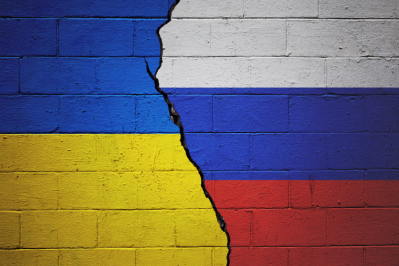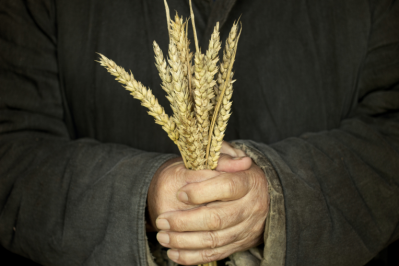The new normal for food trade in war-torn Ukraine: 'The greatest demand is for affordable, essential products'

Much has been made of the impact war in Ukraine is having on global commodities markets. Ukraine is known as the ‘breadbasket’ of Europe. With more than 70% of the country’s land dedicated to agricultural production, it is a major producer of commodities like sunflower, corn, soybeans, wheat and barley. Reams of print have been dedicated to dissecting how the conflict and Russia's blockade of Black Sea ports will impact food supplies in western markets, pushing up prices at the till. But what of food supplies in Ukraine itself?
Exporting food to Ukraine is ‘facing a huge challenge’ but demand is ‘growing by the day’, according to Warsaw-based food company Agus. “In conflict-affected markets, you must act flexibly and respond quickly to a dynamically changing situation. We carefully listen to our business partners, who are closest to the people on the ground. Thanks to this we can quickly identify food and beverage categories and specific products needed by Ukrainians now and deliver them,” explained Andrzej Mirowski, Director of Communications at Agus.
Apart from difficult and dangerous transport, storage conditions and payment security, Mirowski said the changing needs of people need to be addressed. Agus sees current demand for food and beverages focusing on shelf-stable products that can be stored at ambient temperature and that are RTE (Ready To Eat). People need access to ‘all kinds of instant dishes’ – and they need to be offered them at affordable prices.
“Due to the declining purchasing power of Ukrainian consumers and their current daily challenges, the greatest demand is for essential products that are affordable, easy to store, and do not require special preparation conditions. These include pasta, beverages, oils, cheeses, mayonnaise, ketchup, and canned food,” Mirowski observed.
Pivoting to pasta, not smoothies
In the face of conflict in Ukraine, Agus said its ‘agile business model’ has ‘proven its worth’.
The dairy-to-snacking company has pivoted to prepare supplies of the ‘most needed’ food products. It has established a special product team that is in ‘daily contact’ with representatives of Ukrainian retailers like ATB, Fozzy, SPAR, EKO Market, Fozzy Group, Sim 23, Sviy Market, Hostynny Dim and Chudo Market, as well as distributors in the country. In this way, the Polish food company has been able to identify the ‘main market needs’.
“At Agus, we put people at the centre of everything we do. For years, we have been observing market trends, mapping consumer needs, and providing products that meet them. We are in the process of implementing our Agus Vision 2025, which includes responding quickly and appropriately to changing conditions. An example of this is listing of Hello Day! Smoothie to ATB. The first delivery was up to be delivered on the first day of invasion. However, in the face of the aggression, we focused our activities on helping Ukraine, and immediately afterwards on adapting our offer to the current needs identified by our business partners. Instead of smoothies, at the beginning of March, our first delivery of pasta went to Ukraine,” reflected Mirowski.
Agus has thrown its weight behind efforts to help Ukrainian civilians, sending over 36 thousand products from its portfolio directly to Lviv, Ukraine, and the SOS Food Bank in Warsaw, Poland, as well as supplying reception points for refugees.
“From the beginning of the invasion in Ukraine, we did not hesitate for a second and we immediately joined the aid effort,” Mirowski explained. “Despite this terrible war, Ukraine is trying to function normally, and we have heard from our Ukrainian partners that they still want to cooperate with us commercially. In real-time we are adjusting our product portfolio to new conditions. We see enormous potential and need for trade with Ukraine. Therefore, we are constantly looking for innovative solutions and we are eager to start cooperation with both Ukrainian and European partners.”
With over 44 million inhabitants who need ‘real help’, Agus said the best way to provide support is through a flexible and dynamic trading strategy. “The most crucial thing in providing effective support to Ukrainians is to act quickly and flexibly as their needs change very dynamically. What is important, Ukrainians do not expect only help. They want to trade with us, which in a sense allows them to live normally, even in these challenging times,” Mirowski concluded.





















